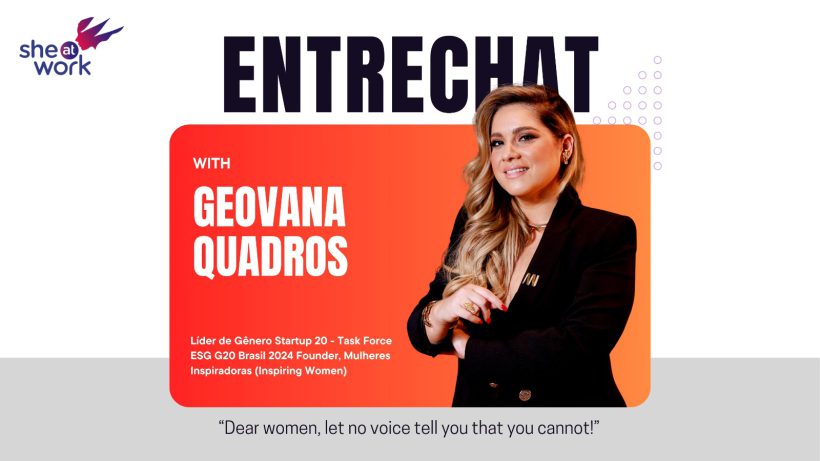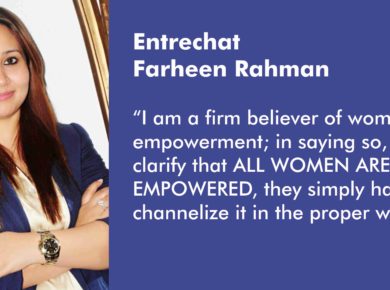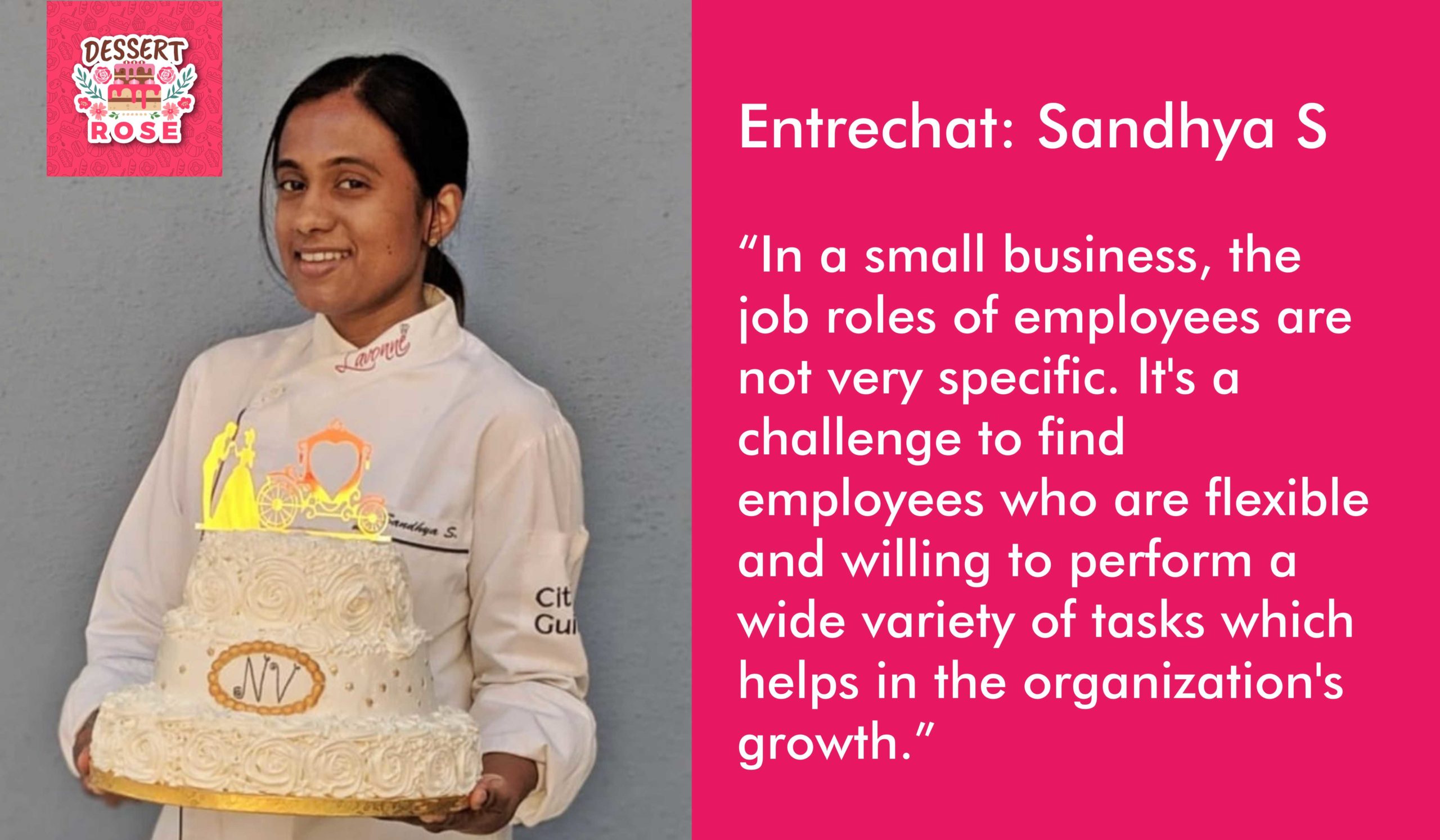Around the world, women leaders are soaring high and, in the process, they are leaving unmatched imprints of achievements on the sands of time. When it comes to female leadership and empowerment, Brazil is not lagging behind – Today, Team SheAtWork is delighted to host, Ms. Geovana Quadros, Founder, Mulheres Inspiradoras (Inspiring Women) platform, Lider de Genero Startup 20 -Task Force ESG G20, Brazil 2024. A tenacious woman entrepreneur, set to connect the dots between other aspiring women, Ms. Quadros leaves no stone unturned to support and uplift other women.
Ques. What inspired you to create this platform for women and how impactful has your work been so far?
Ans. I began 10 years ago with only 20 women but today we are a robust group numbering in thousands. My aim was to start a platform, a movement, to bring talented women together where they can cooperate with each other and uplift each other. I firmly believe, that if you wish to change gender inequality, we need to have more women in the top positions across sectors. Currently, Brazil has around 30% of women in leadership roles and this must keep growing.
Ques. What challenges do women face while climbing the leadership ladder?
Ans. The biggest challenge for women begins right from the first rung of the ladder; because when we look up, we see men in top positions. This hampers our confidence and makes it difficult for us to perceive a woman in a top, decision-making, leadership position. We do not have a perspective to rise up. According to studies, at this rate, it will take another 130 years to achieve gender parity! What we need is an all-round movement, beginning with the right education to set the right mindset, to expedite the momentum of change and address the gender gap.
Ques. Women need maternity breaks which result in career gaps and slowed career progress. How is Brazil addressing this issue?
Ans. Men in top-positions must strive to reach out and make way for women to reach up too. What can be achieved in unison cannot be achieved in silos. Men and women should become allies. Once a woman wishes to make a come-back after a maternity leave, she is not easily accepted – and this stands true not only for the Brazilian market but also for the global market.
Again, sons tend to get more opportunities to grow than daughters – so that is another mindset we need to change urgently to allow girls to choose their career pathways and progress on the same. We must take cue from some exemplary countries, like Iceland, where the gender gap is less; they have introduced the concept of ‘paternity leave’ to help share the new mother’s work load and concurrently reflect that both parents have equal rights and duties at home too. So, when the biases are eradicated at home, organizations too, begin perceiving men and women as equals.
Ques. How do you see gender inclusivity shaping the global sustainability agenda?
Ans. It is being widely acknowledged, and I too firmly believe, that we cannot talk about/imagine achieving sustainability or other lofty goals, if we do not put women at the pivotal point of these goals. Industries often complain about not having enough women entrepreneurs, but when women do strive to embark on the entrepreneurial journey, they lack funding and support. Big venture capitalists invest meagerly in women-led businesses. This needs to change. A collective effort from industries and governments is needed to push women where they rightfully belong – at the centre of all major decisions and action.
Ques. What is your advice for aspiring, future women leaders?
Ans. I want to tell all women that all the voices that say ‘you cannot’, should act like a propellant – creating enough courage in you to break barriers and soar high!










